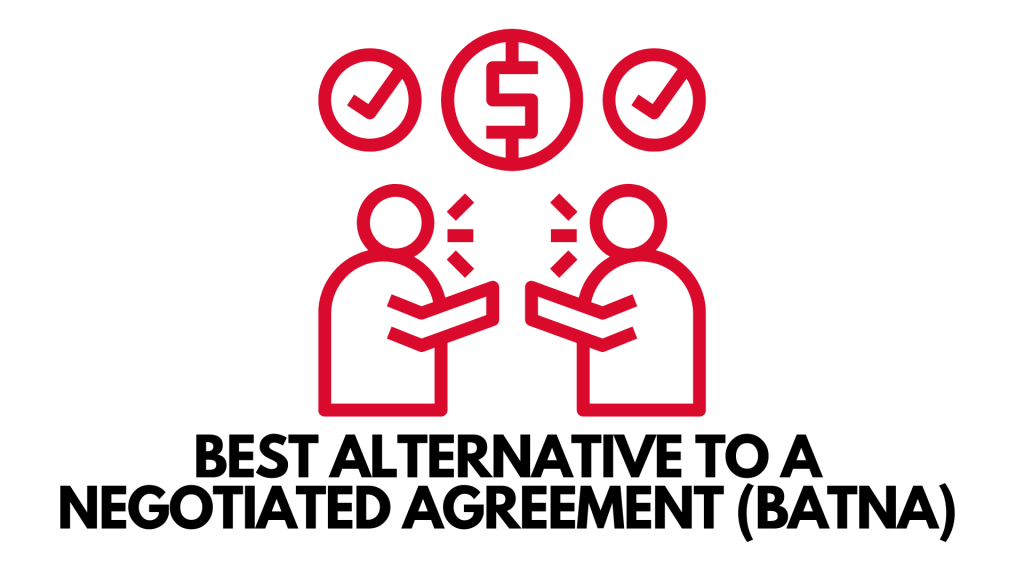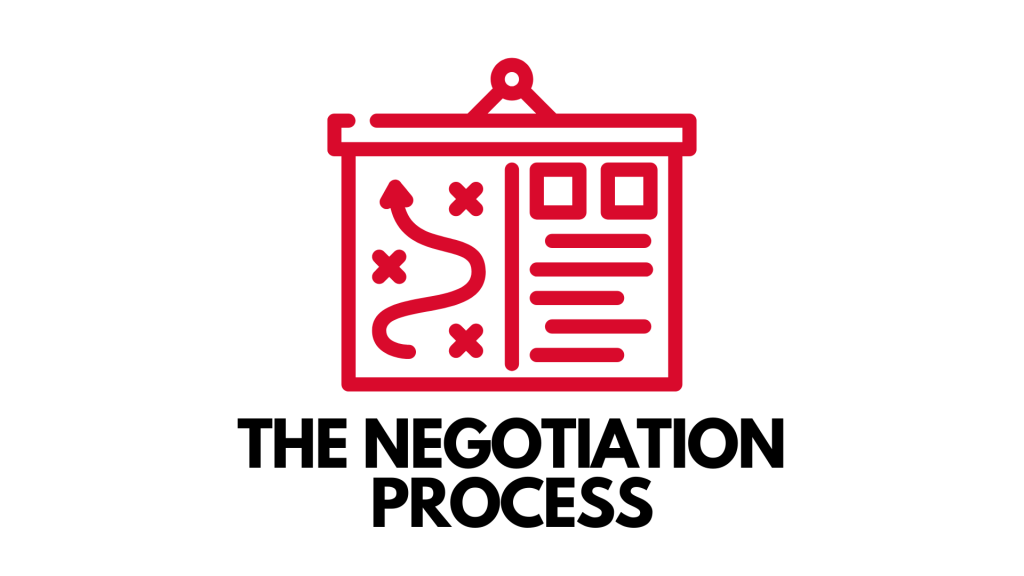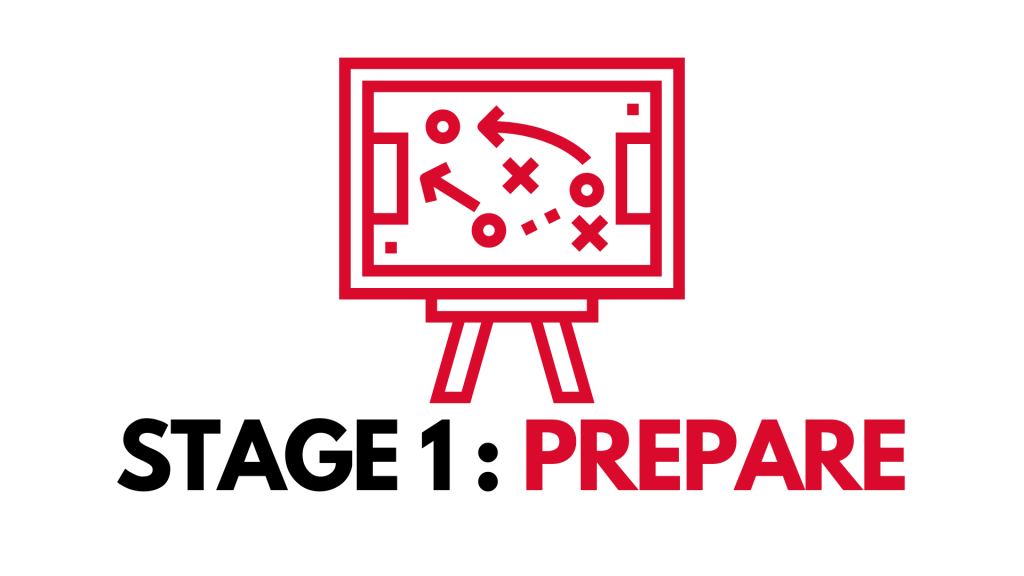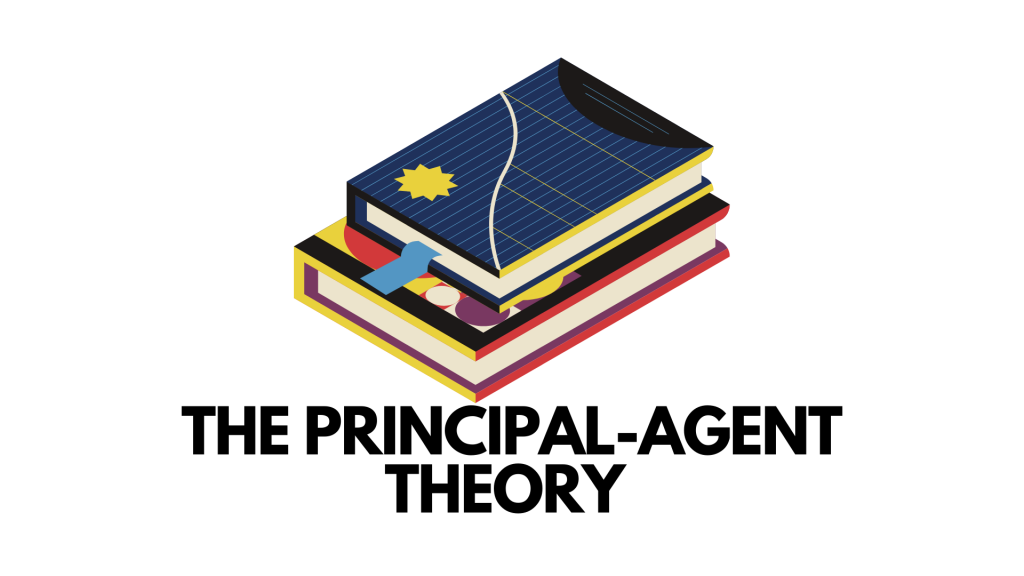Negotiations—a word often used in regards to settling differences. As an entrepreneur and in the journey of entrepreneurship, negotiation is essential as disagreements are immense. The entrepreneurial leader must negotiate for everything throughout a business’s life, especially in the early days when the future company is merely an idea or at the seed stage.

Every entrepreneur’s negotiation strategies are essential, as starting a business is like a rollercoaster. The amount of hunger, drive, and skills needed is immense. So, what is the best way to perform a negotiation analysis? How do you incorporate your BATNA into your research? What is the cost of your reservation? What is your stretch goal? What is your possible agreement zone?
One of the most important things you need to know about negotiation? —BATNA.
Best Alternative To A Negotiated Agreement (BATNA)
If discussions fail and no agreement can be reached, the best alternative to a negotiated agreement (BATNA) is the course of action that a party will adopt. When the participants in a negotiation cannot reach an agreement, BATNAs are used. The reservation value–the worst potential offers a negotiator is willing to accept–is determined using BATNAs.
Negotiators can also strengthen their stance by considering a variety of BATNAs.

Parties can modify BATNAs to any situation that requires negotiation, from salary negotiations to settling more complex issues like mergers. BATNAs are critical in negotiations because, without them, a party cannot make an informed judgment about whether or not to accept an agreement.
The Process Of BATNA
Usually, the steps to negotiations are not as clear and concise. However, Harvard researchers have identified several measures to clarify the process of BATNA. Them being:
- If your current negotiation comes to a halt, make a list of all possible options.
- Assess the worth of each of your options by weighing the pros and cons of each.
- Choose the alternative action(s) that will provide you with the highest predicted value.
- Calculate your reservation value or the lowest-valued offer you’re willing to take once you’ve determined your BATNA in Step 3.
A strong BATNA can also help a party realize that it has a viable alternative to the agreement and that it can reject a tempting offer. Negotiation entails more than just deciding on a set of options. By resolving complex issues, understanding the intricacies of negotiating methods can enhance professional relationships.
It is critical to prepare as much as possible before engaging in talks to achieve the best potential result. This means you should not only create a strong BATNA ahead of time, but you should also investigate the opposing party’s BATNAs.
Most of the time, when people think about getting their way out. However, negotiation is more than that. There are four stages of the negotiation process discussed in the articles ahead.
The Four-Stage Negotiation Process:

1.0 Prepare: Plan Your negotiation Strategy
2.0 Negotiate: Use Key Tactics for Success
3.0 Close: Create a Contract
4.0 Perform and Evaluate: Finish the End Game
With the first negotiation process, we have number one: Prepare.
1.0 Prepare: Plan Your Negotiation Strategy

Some people are simply uncomfortable or humiliated when negotiating in any situation. Alternatively, other people may be afraid, hesitant, guilty, and strangely uncomfortable, and for some, it may be a horrific experience.
The importance of preparation in the negotiation process cannot be overstated. Being well-prepared instills confidence and offers the negotiator an advantage.
Preparation can involve activities in negotiation such as:
- Gathering Information: One must understand everything about the problem and determine what information is required from the opposing side. It is also necessary to have a thorough understanding of the issues.
- Understanding the people involved: It’s critical to understand the folks you’ll be negotiating with. Understanding their goals, roles, and the difficulties they are likely to bring up will help you handle the situation better during the negotiating process.
- Knowing your objectives: It is critical to understand your goals clearly. It’s crucial to define how much you’re willing to give up on your opponent and your priorities ahead of time. All justifications and arguments should be prepared.
Most of the time, preparing the best for any negotiation also means looking for alternatives. This alternative is called the principal-agent theory.
The Principal-Agent Theory

In commercial negotiations, the Program on Negotiation has identified three main scenarios in which you should hire an agent to represent you at the negotiating table:
1. Unfamiliar Rules and Issues at Hand
Negotiations can sometimes take you out of your comfort zone and into new territory. When you’re confused about the challenges at hand or the game’s regulations, it’s good to seek out an experienced agent.
2. The Time and Distance Hampers the Negotiation
What if you have a meeting scheduled with someone in a different city or nation, or if you have a tight deadline to meet? You’re unlikely to represent yourself well if you don’t have time to meet with possible partners in a remote area or participate in every step of the process.
3. Poor Relationship with the Negotiation Partner
You may reduce tensions and guarantee that discussions are businesslike and pleasant by bringing in an agent. This tactic is most visible intense diplomatic situations, such as the negotiation of a cease-fire between fighting troops; factions may send in people they both trust to negotiate a peace accord.
These theories and agreements are only the first stages of negotiation, and moving on can be a big deal as they are crucial to starting the process.
